Great Design Plant: Verbena Stricta Tolerates Tough Spots
http://decor-ideas.org 08/14/2014 23:13 Decor Ideas
Thriving in unimproved places such as pastures, railway edges and compacted hiking trails, hoary vervain (Verbena stricta) is a fantastic native perennial to try where “nothing else will grow.” This medium-size, upright perennial has long-lasting blue to violet flowers, adding color to the landscape throughout the summer months. Hoary vervain is also a bee and butterfly favorite; it lures in our winged friends by producing nectar with a high concentration of sugar — what pollinator could resist that offering?
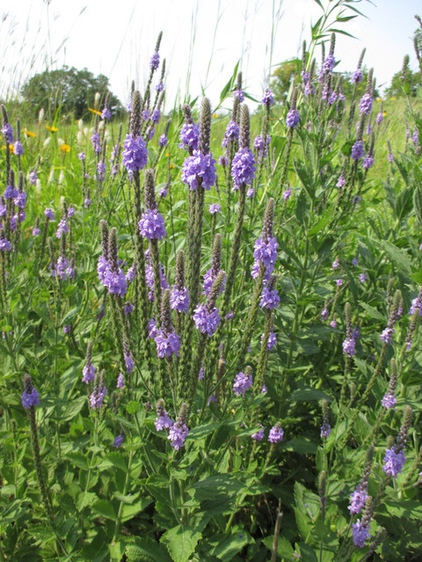
Botanical name: Verbena stricta
Common name: Hoary vervain
Origin: Native to the United States except the following states: Oregon, California, Louisiana, Florida, South Carolina, Maryland, Virginia, New Hampshire and Maine; also grows in Ontario and Quebec
Where it will grow: Hardy to -40 degrees Fahrenheit (USDA zones 3a to 7a; find your zone)
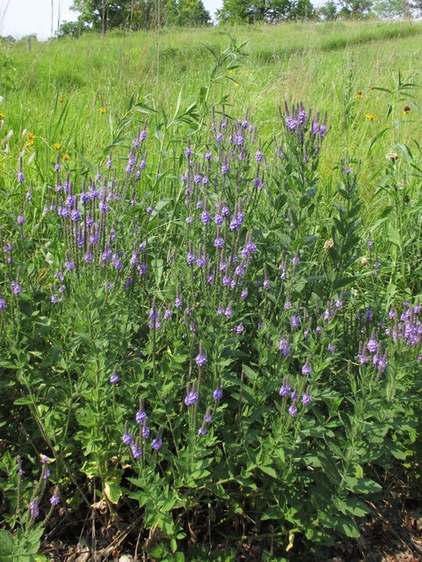
Typical plant communities: Prairies, woodland edges, old fields, grazed pastures and other unimproved places, including railway right-of-ways
Water requirement: Medium to dry, well-drained soil; sand to loam
Light requirement: Full sun
Mature size: 24 to 48 inches tall and 12 to 24 inches wide
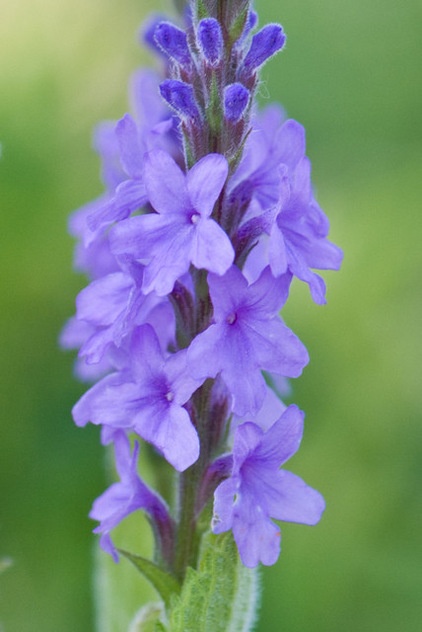
Benefits and tolerances: Tolerates disturbances such as soil compaction and heat generated from hardscaping such as asphalt; very drought tolerant
Seasonal interest: Shines in the summer months; flowering begins in July and continues into late August or early September
When to plant: Spring or fall
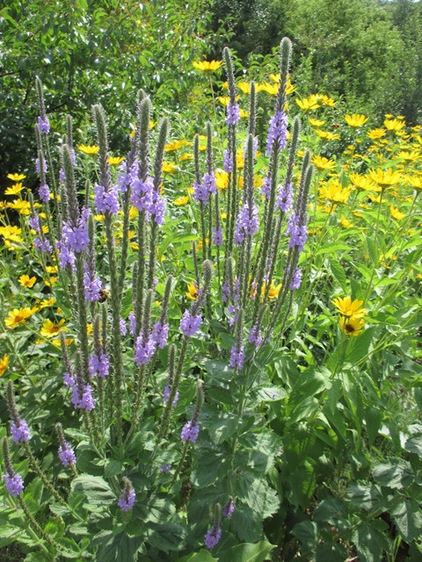
Distinguishing traits. Flowers begin opening on the bottom of each spike and continue to open, moving upward. This flowering sequence provides a long season of interest and color. The blue to violet flowers are tightly clustered on narrow, finger-like, upright flower spikes, and the coarse-textured leaves contrast nicely with the soft blue flowers.
How to use it. Hoary vervain is best used in sites that are dry and have well-drained, sandy oil. Combine it with yellow-flowering native plants, such as black-eyed Susan (Rudbeckia hirta), smooth oxeye (Heliopsis helianthoides, shown) or gray-headed coneflower (Ratibida pinnata).
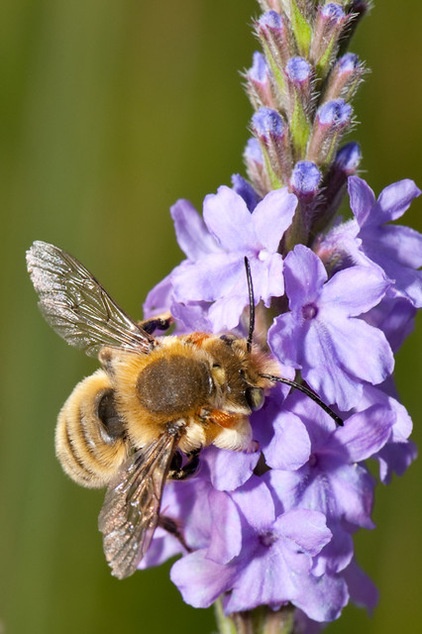
Planting notes. Hoary vervain readily self-sows if bare soil surrounds the parent plant. The seeds require light for germination. They can be collected and stored in a cool, dry place. Cold stratify seeds for 60 days before sowing them on the soil surface; do not cover them with soil.
It is a plant commonly cultivated by native-plant growers in its range, especially in the Midwest, and is available in a variety of container sizes.
Hoary vervain’s coarse-textured leaves make it unpalatable to livestock, so it can often be found in grazed pastures, tolerating compaction from livestock and thriving with little competition from other plants.
Shown: A male leafcutter bee (Megachile sp) on hoary vervain
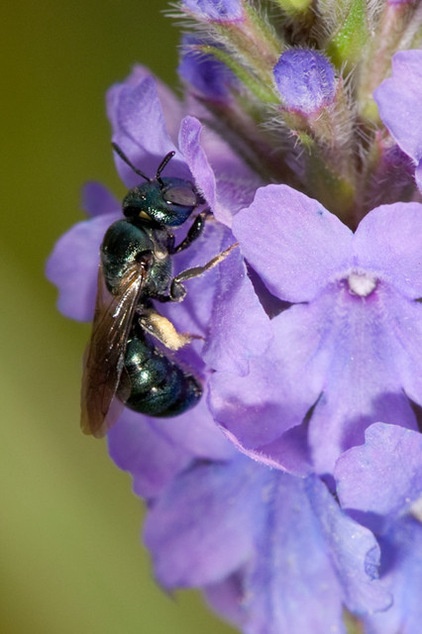
Pollinator notes. Nectar is the main resource sought out by visiting pollinators. Pollinators require a tongue long enough to reach the nectar at the base of the tubular flower. Look for many types of wild bees, butterflies, skippers, moths and flower flies. Soldier beetles can also be regularly observed visiting the flowers.
Shown: Small carpenter bee (Ceratina sp.)
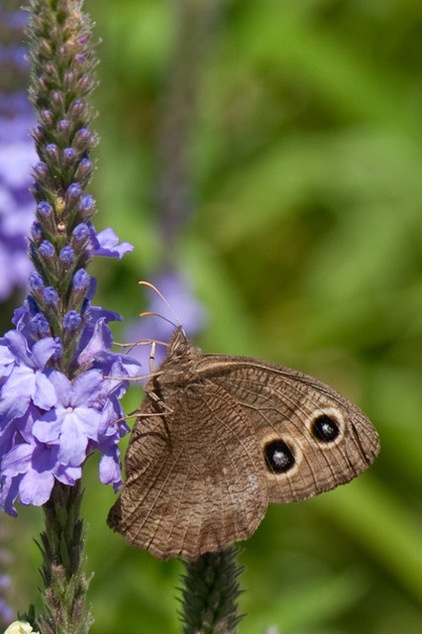
Shown: Common wood nymph butterfly (Cercyonis pegala) on hoary vervain
More:
How to Get Your Prairie On
Browse plants native to your region
Related Articles Recommended












